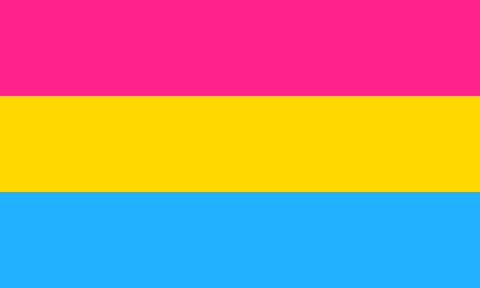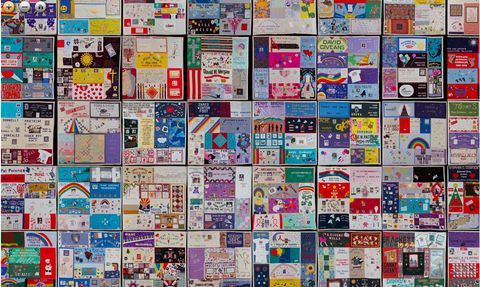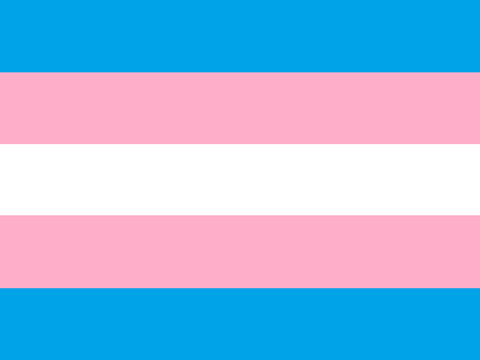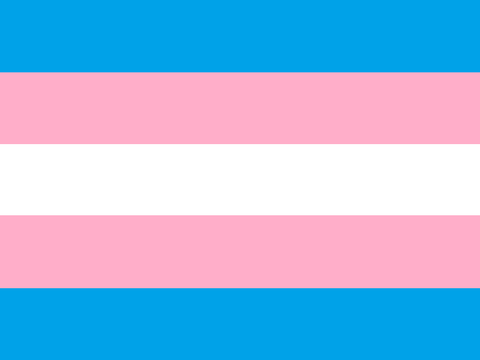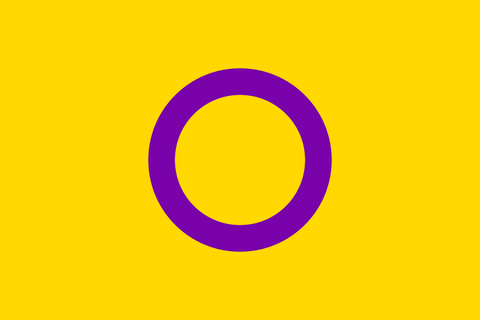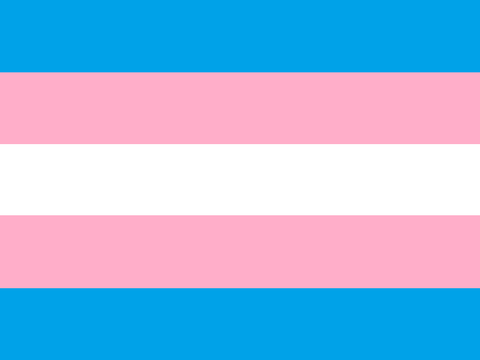This is why we don’t get LGBTQ+ representation in Singapore // LGBT Rights in Singapore
| Updated on
The last local TV series I watched was Holland V, back in 2003.
The show told the story of the Mo family, who runs a Nasi Lemak restaurant in Holland Village. But aside from the great ensemble cast and whopping 125 episodes, something else caught my attention.
Yang Xiong, one of the main characters, was portrayed as an extremely, exaggeratedly, effeminate man. Yet he was fiercely heterosexual — he denied accusations that he was gay, and eventually fell madly in love with the main lady character of the show.
 The 100% straight Yang Xiong in Holland V.
The 100% straight Yang Xiong in Holland V.Effeminate straight men exist, I know. But there’s something peculiar about the show’s strong-arming of an extremely effeminate man being extremely straight, all without much of an outcome (spoiler: he didn’t get together with the lady) (edit: he might have; the ending was ambiguous). And then I realised something more peculiar: all local TV drama characters are straight.
It took me nearly two decades to understand why that’s the case.
Because the system is working.
Everyone, meet institutionalised discrimination
People are biased creatures. We sometimes carry biased beliefs and act in ways that are unfair against a segment of our society: racial minorities, foreign workers, sexual minorities. That’s discrimination, and it’s wrong.
But sometimes, it gets worse than that.
Because when those same biased beliefs get codified in societal institutions (schools, governments, etc.), you end up with a system that — intentionally or not — actively discriminates against a segment of society. As a result, an entire society becomes discriminatory through these institutions.
This is institutionalised discrimination. And for the longest time, LGBTQ+ individuals in Singapore have been subject to it.
It (probably) started in our colonial days
Between 1819 to 1963, colonisation (read: forceful conquering of foreign lands) was still rampant, and Singapore was ruled by the British empire. Because of that, our parliamentary, legal, and even accounting systems were largely adopted from the British.
 If only colonisation were so peaceful.
If only colonisation were so peaceful.In 1938, Section 377A was introduced to our country’s Penal Code:
Any male person who, in public or private, commits… any act of gross indecency with another male person, shall be punished with imprisonment for a term which may extend to 2 years. (See Penal Code)
This anti-gay law — inherited from our British overlords — criminalises sexual acts between men, and till date remains in our law books (various parts of the UK have repealed this law between 1997–2006).
This was likely the foundation on which all other institutionalised discrimination against LGBTQ+ people were built.
80+ years on: institutionalised discrimination against LGBTQ+ people still flourishes
LGBTQ+ people in Singapore face many disadvantages, from financial penalties in housing, to a lack of protection under the Constitution, to a lack of marriage equality. But for now, let’s focus on the ways Singapore has systematically, actively, and pervasively erased LGBTQ+ representation.
What follows is an exhaustive list (as of Apr 2020) of all the ways LGBTQ+ representation is snuffed out in Singapore, split into broad categories (skip to TL;DR below):
- Local free-to-air TV channels
- Cable TV, on-demand TV, movies
- Radio stations
- Video games
- Arts entertainment
- The internet
- Local magazines
- Imported publications
- Schools
- Politics
- Public Libraries
(A note before you proceed: I try to be as exhaustive — and as factually correct — as possible. But if you spot a mistake, please point it out and I’ll amend it as best as I can!)

The far-reaching arms of Infocomm Media Development Authority (IMDA)
IMDA is a statutory board in Singapore that censors regulates media content in the country. Their authority is far-reaching, and by that I mean really, staggeringly far: they regulate local free-to-air TV channels, cable TV, on-demand TV, movies, radio stations, music, video games, arts entertainment performances, magazines (local and imported), and even the internet (bless their souls for trying).
In general, IMDA uses a content classification system that rates content on a scale of G (suitable for a general audience) to R21 (restricted to people aged 21 and above). They can also ban works by refusing to classify them. And on top of that, some mediums of content (TV, radio, etc.) have a specific set of guidelines that regulates the types of ratings or content that are allowed.
Through its legally enforceable guidelines, IMDA plays a huge part in erasing LGBTQ+ voices in Singapore. For that reason, you’re gonna hear a lot about them in the sections below (brace yourselves).
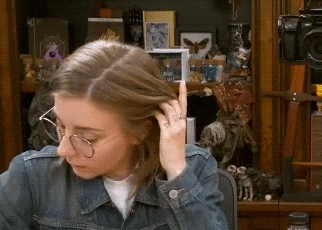
Local free-to-air TV channels
IMDA’s content code uses a shrewd mix of classification and scheduling guidelines to prevent any representation of LGBTQ+ voices on free-to-air TV channels. Here’s how they do it.
For starters, they define “alternative sexualities” (page 19) as anything that’s not heterosexual. Next, anything that contains “alternative sexualities” is deemed to contain “mature themes” (page 20). This clever definition allows them to put nearly all LGBTQ+ representation under the “mature themes” bucket.
Works that centre on “mature themes” are then rated at least NC16 (page 15, para 10a), and just to be safe, those that centre on “alternative sexualities” are rated at least R21 (page 16, para 10d).
And then comes IMDA’s finishing move: shows above PG13 are completely banned from broadcasting (page 2, para 2.3). Check. Mate.
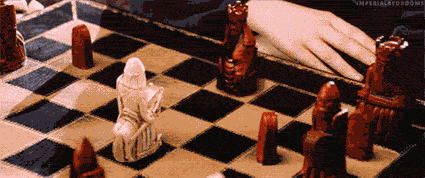 You smashed it, IMDA!
You smashed it, IMDA!Using a multi-layered approach, IMDA classifies nearly all LGBTQ+ representation into non-existence on our free-to-air TV channels. (Yes, that’s why all local TV drama characters are straight.)
Edit: There have been several occasions of LGBTQ+ representation in recent local TV series. An episode of Left Behind (2016) featured a trans man’s struggle with familial acceptance and workplace harassment, with a surprisingly wholesome ending (he got promoted by an affirming boss, and his relationship with his dad became better). TV series Faculty (2017) heavily hints that one of their characters is gay, without explicitly mentioning it: they depict his struggles, from being unable to “do it” with a girl, to being called “gay” on social media, to struggling with his relationship with a foreign exchange student called Trevor. It appears that not all hope is lost.
Cable TV, on-demand TV (e.g. Netflix), and movies
To understand how IMDA effectively snuffs out representation here, we’ll need to dive into the details of their classification guidelines.
“Homosexual” or “mature” themes
The presence of “homosexual themes” as a sub-plot (which presumably means there’s a gay supporting character with a bit of a story arc ) automatically puts a work at an M18 rating (page 21).
If the gay sub-plot isn’t treated discreetly, or if they’re the main characters, or in a same-sex marriage, or are same-sex parents, IMDA would most likely slap an R21 rating on the work, and put it under “strict review” (page 21).
But that’s not all.
As mentioned before, IMDA classifies all LGBTQ+ identities under the “mature themes” bucket. They use it to dish out M18 or R21 ratings to shows with representation of other identities too. Case in point: The Danish Girl, a movie that centres around a trans woman’s struggle with her identity, received the R21 rating.
“Sex”, or if the characters aren’t straight, even non-sex
Depictions of kissing or hugging of LGBTQ+ couples give films an instant M18 rating (the same for straight couples get a PG rating) (page 23). Brief, non-detailed depictions of sexual acts between LGBTQ+ people gets the highest R21 rating, while a similar one for straight couples gets NC16 (page 23).
 Phew, narrowly dodged an M18 rating there!
Phew, narrowly dodged an M18 rating there!And what about more detailed depictions of sex? Such scenes involving straight couples might get an R21 rating, but the same for LGBTQ+ couples are simply left out of the rating system (page 23). They might be censored away or refused classification (i.e. outright banned from distribution).
TV shows with peculiar ratings
IMDA’s aggressive guidelines is the likely reason TV shows such as Glee (the one where high schoolers break out in dance and song), Modern Family, Pose, Orange is the New Black, Crazy Ex-Girlfriend (the one where adults break out in song and dance), Sex Education, and many more are given the R21 rating on Netflix.

This point bears repeating: Glee, the show about singing teenagers, was given the highest possible rating because of its LGBTQ+ representation. It really makes RuPaul’s Drag Race’s M18 rating look like a lucky fluke, doesn’t it?
Movies with peculiar ratings
As you’d imagine, LGBTQ+ representation is also heavily stifled in movies.
Love, Simon, a show about a teenager coming to terms with his sexuality and that contains no sexual scenes, was rated R21 by IMDA due to its “homosexual theme”. Moonlight was given an M18 rating. Disney even censored their token LGBTQ+ representation in The Rise of Skywalker just to get a lower rating from IMDA.
One last slap on cable TV channels
Shows rated M18 are only allowed to be aired from 10pm– 6am, and those rated R21 are completely banned from broadcast (page 2, paras 2.2–2.3).
To summarise: cable TV, on-demand TV, and movies
In general, IMDA will likely rate shows with proper LGBTQ+ representation at least M18 (or have them heavily censored). They’ll likely give shows that centre around LGBTQ+ characters, feature same-sex marriage or parenting, or have non-detailed sexual scenes, the highest R21 rating.
On some level, you have to appreciate the lengths that IMDA go to prevent the general population from accessing, understanding, and empathising with LGBTQ+ perspectives.
Local radio stations
IMDA’s code for radio services makes things really simple: you can’t talk about, have dialogues, or share information about LGBTQ+ topics on air (page 3, para 2.8). Radio stations are also not allowed to justify any LGBTQ+ orientations (page 3, para 2.8). By extension, songs explicitly about LGBTQ+ experiences (such as “I Kissed a Girl” by Katy Perry) were also banned from the air.
This complete erasure of LGBTQ+ voices took IMDA but a single paragraph to achieve.
A+ for efficiency.

Video games
We’re still within IMDA territory here. Stay with me.
Video games only come in two classifications: Advisory 16 (Adv16), which isn’t enforceable, and Mature 18 (M18), which is legally enforceable (page 1, para 5).
Games that contain “homosexual themes” will be given an M18 rating if it’s discreet, or refused classification if not (page 4, para 15a; page 6, para 17dii). If the game features same-sex couples who hug or kiss, they automatically qualify for an M18 rating (page 5, para 15c).
IMDA almost banned Mass Effect in 2007 for its “homosexual theme” (players are able to form lesbian relationships with another character), but later gave it the M18 rating (aww, how kind of them). They also gave some of the Mass Effect sequels M18 ratings for similar reasons. More recently, IMDA dished out M18 ratings to Assassin’s Creed Odyssey and the Life is Strange series (amongst other games) partly because players were able to have same-sex intimacy with other characters.
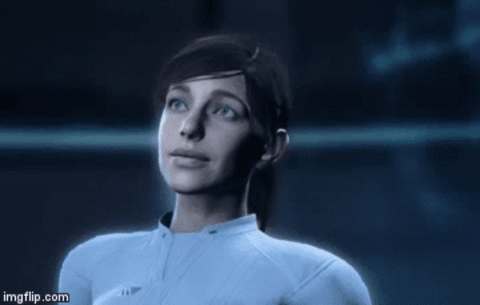 Wow, thanks for your generosity, IMDA!
Wow, thanks for your generosity, IMDA!Arts entertainment (including concerts)
IMDA’s code for arts entertainment covers a wide range of events: plays, literary readings, sketches, variety shows, performances, dances, concerts, and exhibitions. There’s a range of ratings, but only R18 (restricted to ages 18 and above) is enforceable (page 2, para 6). R18 works also can’t be promoted on TV or radio stations (page 6, para 18).
Works that have infrequent kissing or hugging between LGBTQ+ couples would get an R18 rating (page 5). For comparison, those that have infrequent simulated sex between straight couples only get a non-enforceable Advisory 16 (page 4). Yes, you read that right.
If the content focuses on LGBTQ+ experiences, it’ll likely get an R18 rating too (page 5).
Taiwanese pop superstar A-Mei was famously banned in 2014 from singing “Rainbow” in an open-air concert, because the song contains messages of solidarity with gay people. How strange, it almost seems like IMDA doesn’t want gay people to feel loved.
The internet
While most of IMDA’s internet code targets pornographic and extreme content, we shouldn’t be shocked by now to learn that they also use it to target LGBTQ+ content. According to the code, any content that supports homosexuality or lesbianism is likely considered prohibited material (page 3).
Judging by the fact that we can still access LGBTQ-affirming websites and content on the internet without VPNs, it appears that IMDA doesn’t actively enforce this code.
Local magazines
Straight off the bat, local magazines can’t feature any content that suggests LGBTQ+ experiences are valid and acceptable (page 1, 1.1ii).
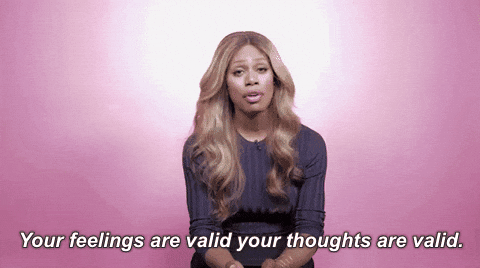 Shh, you’re not allowed to say that in our local magazines.
Shh, you’re not allowed to say that in our local magazines.And while LGBTQ+ people may be featured on the cover of magazines, their sexuality probably can’t be identified or be a part of the feature (page 4, para 3.3iv). This is true even for adult interest magazines (page 5, para 4.2iv).
On top of that, while adult interest magazines can describe or depict sexual activity that’s relevant to its articles, they can’t do that if it pertains to sexual activities involving LGBTQ+ individuals (page 6, para 4.5).
Imported publications
IMDA’s guidelines cover pretty much any kind of publication produced overseas and imported to Singapore.
In general, they follow the same rules as local magazines: content cannot suggest that LGBTQ+ experiences are valid and acceptable (page 1, para 3).
The following types of publications are also not allowed to carry any depiction of LGBTQ+ experiences, though it’s unclear how or if IMDA enforces it: teen publications (page 3, para 7), sex and massage manuals (page 5, para 6), erotic fiction (page 6, para 4), art publications (page 7, para 4), calendars and posters (page 10, para 3iv), adult interest magazines (page 11, paras 2iii and 7), and comics (page 14, para 10).
And yes, we’re finally done with IMDA.
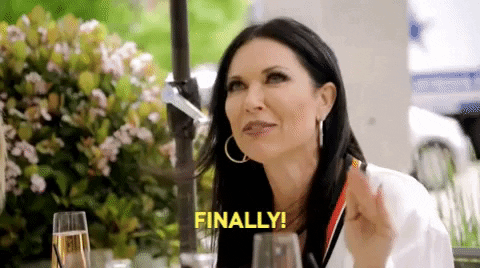
Schools
Update: we’ve written a super comprehensive article on all the ways Singapore’s schools have been suppressing, erasing, and bullying LGBTQ+ folks.
Sex education
Singapore’s sex education teaches nearly exclusively about heterosexuality. While some schools may teach about homosexuality, the Ministry of Education (MOE) states that this will be followed up with reminders that sex between men is a criminal offence. Nearly all references to sexuality are made in the heterosexual context, and the curriculum doesn’t acknowledge the existence of any other orientation or identity. Teachers are also known to dismiss LGBTQ+ identities as phases that people will get over.
In 2009, MOE removed AWARE from its list of approved vendors partly because their sex education material didn’t put homosexuality in a negative light.
Teachers
Otto Fong sparked controversy in 2007 when he publicly came out on his blog. In that swift move, he became Singapore’s first publicly gay teacher. He later revealed that his school’s management had asked him to stop giving LGBTQ-affirming messages to students. Anecdotal stories from teachers (who prefer anonymity) confirm that this unspoken rule exists in schools.
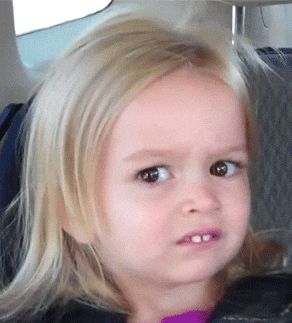 So teachers... can’t be too nice?
So teachers... can’t be too nice?MOE has also on at least one occasion publicly warned teachers that they’re not allowed to “promote” LGBTQ+ orientations in class.
Some teachers have also been known to actively bully LGBTQ+ students under their charge (H/T to @myqueerstorysg for giving us these anecdotes). In one instance, a science teacher confronted their student during class about their sexuality, even going as far as asking their desk mate whether they felt scared sitting next to a gay person. Another teacher publicly outed a queer student in their class, while another publicly declared the LGBTQ+ community as the decline of morality.
Counsellors
School counsellors play a critical role in the mental wellbeing of students. While the following anecdotes aren’t representative of the general quality of their services, they highlight painful gaps in the system.
A student, for instance, came out to his counsellor and was promptly informed that this piece of information had to be reported up to the school principal. Uncomfortable with this, he eventually decided to stop going for counselling altogether.
Another student came out to their counsellor as a trans male, only to be later told that they’ll never be male, and that they should “get over it”.
Speakers at school events
Speakers who identify as LGBTQ+, or who support the LGBTQ+ community, have been consistently banned from speaking at school events.
In 2018, St Joseph’s Institution barred Rachel Yeo from speaking at their TEDx talk the day before she was scheduled to speak, because they realised that she was a part of the Inter-University LGBT Network. The school explained to her that they did so to abide by the regulations imposed by MOE. The Ministry, however, claimed that no such regulation exists.
A year later, Singapore Polytechnic banned radio DJ Joshua Simon from speaking at their TEDx talk the day before he was scheduled to speak, because they realised that his talk would include LGBTQ+ experiences. (Deja vu, anyone?) He was told to censor his script in order to be approved as a speaker, but he declined. A representative from the school said that they had to abide by the Ministry’s regulations, and the Ministry once again distanced themselves from it.
If anything, this pattern of banning speakers proves that MOE doesn’t need formal regulations to effectively censor LGBTQ+ representation from school events.
 MOE’s non-existent regulation at work.
MOE’s non-existent regulation at work.To summarise: Schools
In general, schools erase the existence of LGBTQ+ identities by excluding them from the sex education curriculum, and by prohibiting teachers from giving affirming messages to students. Some teachers push this further by bullying their LGBTQ+ students. That, together with gaps in the school counselling system, puts LGBTQ+ youth at greater risk of mental stress. Finally, even without the need for formal regulations, MOE is able to prevent LGBTQ+ voices from being heard at school events.
Politics
In 2011, incumbent Minister Dr. Vivian Balakrishnan publicly outed opposition candidate Dr. Vincent Wijeysingha during election season, by putting the spotlight on a video that revealed his sexuality. Dr. Balakrishnan even asked Dr. Wijeysingha if he had plans to spread the “gay agenda”, which sounds pretty immature on hindsight. Local tabloid The New Paper ran a cover story the next day, with headline “Is Singapore ready for a gay MP?”.
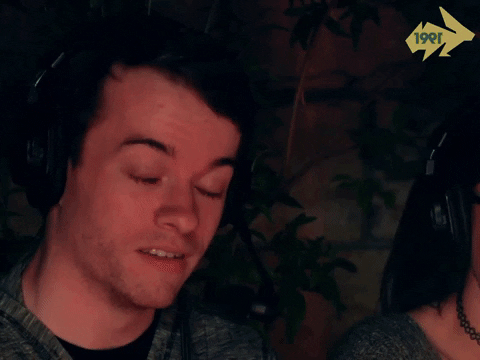
While this seems like a one-off episode done on a personal capacity, it sets a distasteful precedence that’ll make any LGBTQ+ person think twice before entering the political arena (no matter which side of the aisle). Maybe that’s why no elected member of parliament in Singapore’s history has ever identified as LGBTQ+.
Public Libraries
(H/T to @angpeixia for reminding us about this!)
Singapore’s National Library Board (NLB) decided to destroy three children’s book in 2014, two days after an individual reported those books for containing “homosexual themes”. The books in question were “And Tango Makes Three” (a story about two male penguins hatching an egg, based on a true event in a New York zoo), “The White Swan Express” (a story about adoption that includes a lesbian couple), and “Who’s In My Family?” (a story that features different family structures).
NLB’s decision was met with fast and massive uproar. Several prominent writers resigned from and boycotted NLB’s events, while online petitions started to ask NLB to reinstate the books. The library eventually decided to move the books to the adult section instead of pulping them, but not without first expressing how sad they are with the way they were roasted by the public.
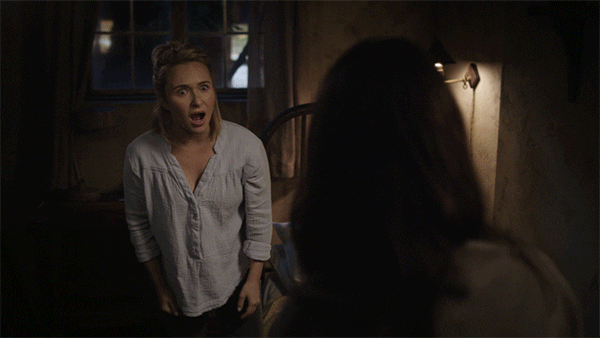 Yes sure, whatever, NLB.
Yes sure, whatever, NLB.
Grand Summary
Gosh, that was a lot to take in.
So take a deep breath, and while you’re at it, see if you can hold it as we review all the ways LGBTQ+ representation is removed from Singapore’s society:
- Free-to-air TV channels: banned (IMDA)
- Cable TV, on-demand TV, movies: given M18 or R21 rating if censorship is refused or impossible; higher ratings given to shows with deeper representation (IMDA)
- Radio stations: banned (IMDA)
- Video games: given M18 if same-sex kissing/hugging is possible in-game (IMDA)
- Arts entertainment: given R18 if the show has LGBTQ+ representation, and banned if it’s at an open-air venue (IMDA)
- The internet: technically banned, but not really enforced (IMDA)
- Local magazines: banned (IMDA)
- Imported publications: technically banned, though unclear how thoroughly it’s enforced (IMDA)
- Schools: LGBTQ+ identities erased from curriculum, teachers prohibited from giving LGBTQ-affirming messages, LGBTQ+ representation banned in school events (MOE)
- Politics: one-off incident where a political candidate was publicly outed by an incumbent Minister
- Public libraries: books destroyed, or moved to the adult section if they’re caught doing it (NLB)
This is a pretty impressive list. And for the most part, it’s working.
Nearly all aspects of life in Singapore are systematically filtered by large, powerful institutions to remove, reduce, and vilify LGBTQ+ voices. The result: a society that inherently discriminates against LGBTQ+ individuals, where indifference towards LGBTQ+ issues becomes silent support of the suppression of their voices.

So… where do we go from here?
When issues concerning LGBTQ+ rights pop up, our politicians are quick to put the onus on society as a whole to make the decision. As Law Minister K. Shanmugam puts it, it’s up to society to “decide which direction it wants to go”. Prime Minister Lee Hsien Loong went even further, claiming that the LGBTQ+ community isn’t discriminated here.
Painfully missing in these rhetoric, however, is the fact that public institutions have been actively preventing the public from hearing and understanding LGBTQ+ perspectives. And we can no longer kid ourselves into thinking that these are accidental omissions. An intentional, systematic erasure is at play.
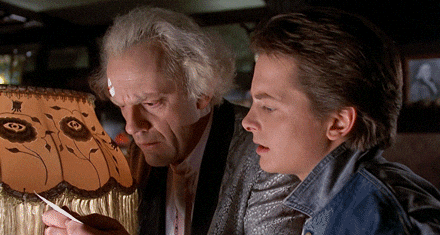
What, then, can we do?
The short answer: amplify LGBTQ+ voices in your own capacity, whenever possible.
The long, non-exhaustive answer:
- Support local LGBTQ+ organisations. They provide critical support and counselling to LGBTQ+ individuals who need them the most. Support them by donating (if they need it, and you’re financially able to), or by amplifying their voices on social media. A non-exhaustive list of LGBTQ+ support organisations: Oogachaga, The T Project, Project X, Action for AIDS, Sayoni.
- Stand up against discrimination, whether casual or outright. If someone makes a nasty remark about someone else’s sexuality or identity, let them know that it’s not ok. Explain what the identities really mean, and clear up any misconceptions they have as best as you can. But please only do this if you feel safe to do so!
- Ask your elected politician what they’d do to protect LGBTQ+ individuals in their constituency. Share with them stories of discrimination that LGBTQ+ individuals face in their daily lives, and ask them if they support these discriminatory behaviours. If they say no, ask them what they’ll do to protect LGBTQ+ people. This might not yield actionable results, but it helps put LGBTQ+ issues on their radar.
- Support businesses that support LGBTQ+ voices. Whether it’s a queer brand, or a bookstore that publishes or sells LGBTQ+ stories, or a fabulous boutique, your purchases directly help them to continue bringing LGBTQ+ representation into society.
- Share this article. Help others understand how LGBTQ+ voices are suppressed in Singapore. Let them know that this erasure didn’t happen because people weren’t interested. Rather, some very interested people have enacted regulations to achieve their intended goals.
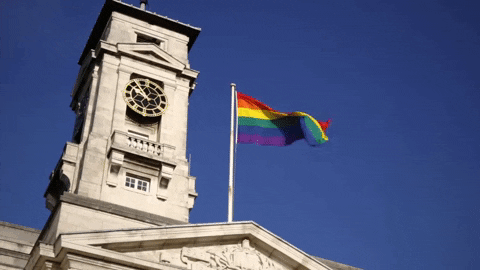
The path to a fair and just society won’t be easy. It might take years, even decades, before LGBTQ+ individuals in Singapore could see proper, wholesome representation in the society they live in.
There might be people, whose rights to equality are guaranteed in the Constitution and whose existence isn’t censored by institutions, who would tell you that what you have is good enough.
There might be politicians, who earn millions in annual salaries, who would remind you to not be too greedy, lest you incur the wrath of the powerful minority who stand in opposition of you.
And they might be right. But what they don’t mention is that history will remember the actions of those who choose to stand with equality — or against it.
“If in fact it is true, and I have asked doctors this, that you are genetically born a homosexual — because that’s the nature of the genetic random transmission of genes — you can’t help it. So why should we criminalise it?”
— Singapore’s first Prime Minister, 2007
If you spot a mistake in the post, please leave a comment so that we can look into it! If this is the first time you’re learning about the ways LGBTQ+ voices are suppressed in Singapore, please share this article so that others can learn about it too!

